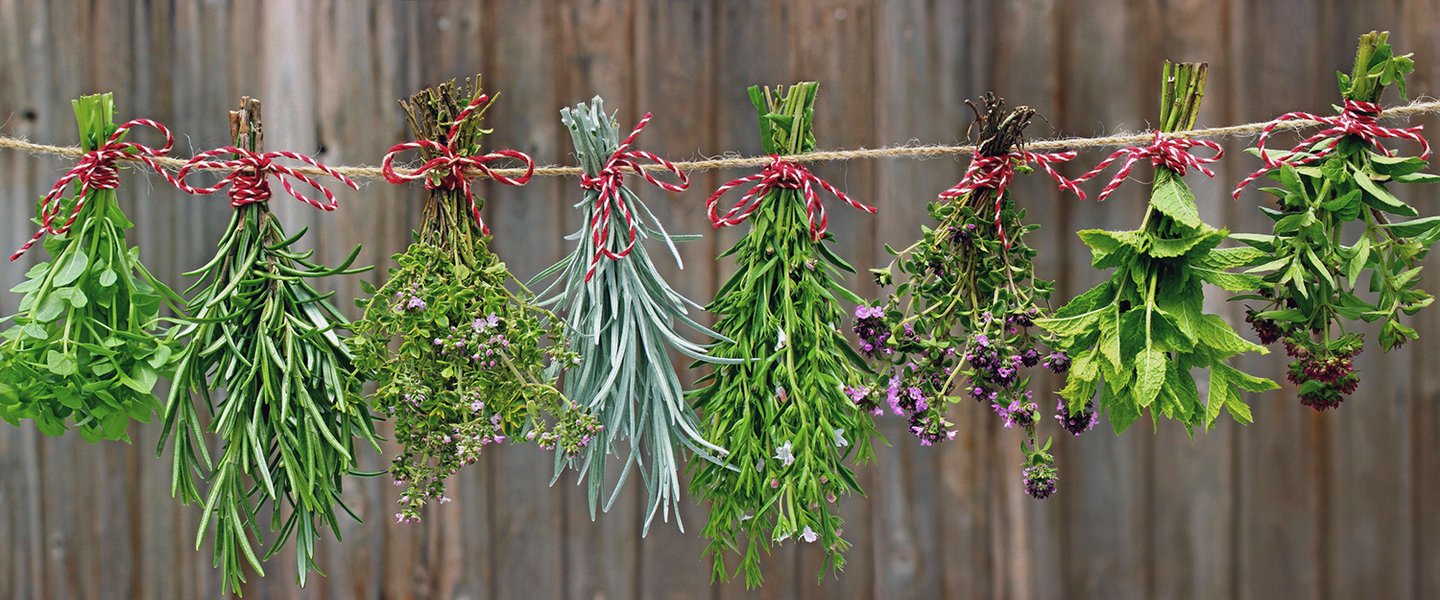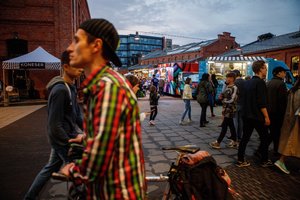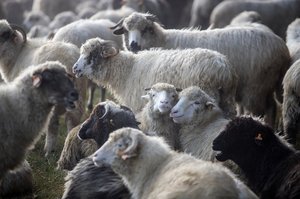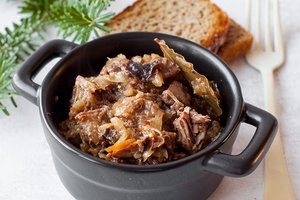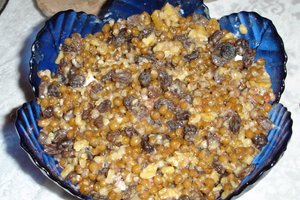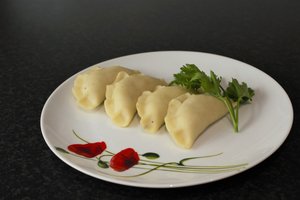Herbal Małopolska
Bread with salvia and lavender, seven herbs witch’s soup, trout in herbal pockets, red pine mushrooms with tomatoes and herbs, common dandelion syrup – these are only few of the delicacies that you can taste in the several dozen agrotourism farms located in the Małopolskie Voivodship, specialising in cultivating herbs. Together, they form a tourist route called “Małopolska Countryside Smells of Herbs”.
 All farms were categorised in line with the requirements of the Federation of Farm and Village Tourism (which means that they also meet the standards provided for by the law), many of them also hold organic certificates. But, most of all, it is the herbs that connect them. The owners completed a training course in cultivating and using herbs in the kitchen, in alternative medicine and in the cosmetics industry. They can also create holiday decorations, pot-pourri from aromatic dried fruit and bouquets. In their home gardens, next to vegetables, they grow tarragon, oregano, thyme, rosemary, salvia, marjoram, lemon balm, garden angelica, borago and nigella, and they use them to spice up the local cuisine dishes, preserves, juices, fruit liqueurs, medicinal syrups and rubs. Many farmers also offer herbal SPA: baths, massages, aromatherapy.
All farms were categorised in line with the requirements of the Federation of Farm and Village Tourism (which means that they also meet the standards provided for by the law), many of them also hold organic certificates. But, most of all, it is the herbs that connect them. The owners completed a training course in cultivating and using herbs in the kitchen, in alternative medicine and in the cosmetics industry. They can also create holiday decorations, pot-pourri from aromatic dried fruit and bouquets. In their home gardens, next to vegetables, they grow tarragon, oregano, thyme, rosemary, salvia, marjoram, lemon balm, garden angelica, borago and nigella, and they use them to spice up the local cuisine dishes, preserves, juices, fruit liqueurs, medicinal syrups and rubs. Many farmers also offer herbal SPA: baths, massages, aromatherapy.
As the farms are usually located at the edge of a forest or at the river, it gives the guests the possibility to look at wild boars, roe deer, hares and birds, to angle, to pick mushrooms and berries. There are also cycling and hiking trails nearby, for example the Wooden Architecture Trail, where you can see churches, Orthodox churches, bell towers, manor houses, villas and open-air ethnographic museums. There are also ski lifts in the area. Tourists might also go canoeing, horse riding or paragliding.
Many farmers uphold the regional traditions: they weave, they crochet lace, they embroider – and they share their skills with their guests. During classes, you can also learn to crochet, knit sweaters or make garlands.
“It was love at first sight. Harklowa in Gorce was my destiny,” writes Akiko Miwa on her website, owner of Villa Akiko in Harklowa, who comes from Japan. Next to picturesque view of the Tatras, Gorce, Pieniny Mountains and the Czorsztyn Lake, Akiko offers Japanese cuisine, tea brewing and kimono wearing performances, ceramics, ikebana and origami classes. In an organic garden, she grows herbs that are popular in Japan, like shungiku (glebionis coronaria), shiso (Perilla frutescens) or nira (a type of chives).
Barbara and Andrzej Mikołajewicz, owners of Willa Jasna in Czorsztyn, specialize in manufacturing fruit liqueurs using fruit from their own orchard and grown in the garden as well as wild herbs: blackthorn, wild rose, garden angelica and lemon balm. The courses entitled “Herbs for health” teach you how to recognize and use the herbs every day and how to make liqueurs.
 Irena Sulicz, owner of a farm called Ramis in Wysowa-Zdrój, specialises in traditional Lemkos dishes (Lemkos are an enthinc group that originated as a consequence of mixing populations of Polish, Ruthenian and Volhynian origin, living in Beskid Niski and the eastern part of Beskid Sądecki). Mint, basil, marjoram, garlic, parsley and dill from the home garden enrich the taste of the dishes prepared according to old recipes.
Irena Sulicz, owner of a farm called Ramis in Wysowa-Zdrój, specialises in traditional Lemkos dishes (Lemkos are an enthinc group that originated as a consequence of mixing populations of Polish, Ruthenian and Volhynian origin, living in Beskid Niski and the eastern part of Beskid Sądecki). Mint, basil, marjoram, garlic, parsley and dill from the home garden enrich the taste of the dishes prepared according to old recipes.
She serves, for example: homiłki (cheese dumplings with mint), kisielica (oatmeal soup), kiszeniaki (stuffed cabbage with sour cabbage and mushroom sauce), war ze zlepieńcami (sour cabbage soup with meat and dumplings), miętownica (a drink made of mint and honey). Her speciality is called dzięgielówka, a liqueur made using a dozen or so different herbs.
NELLY KAMIŃSKA
23.09.2015
